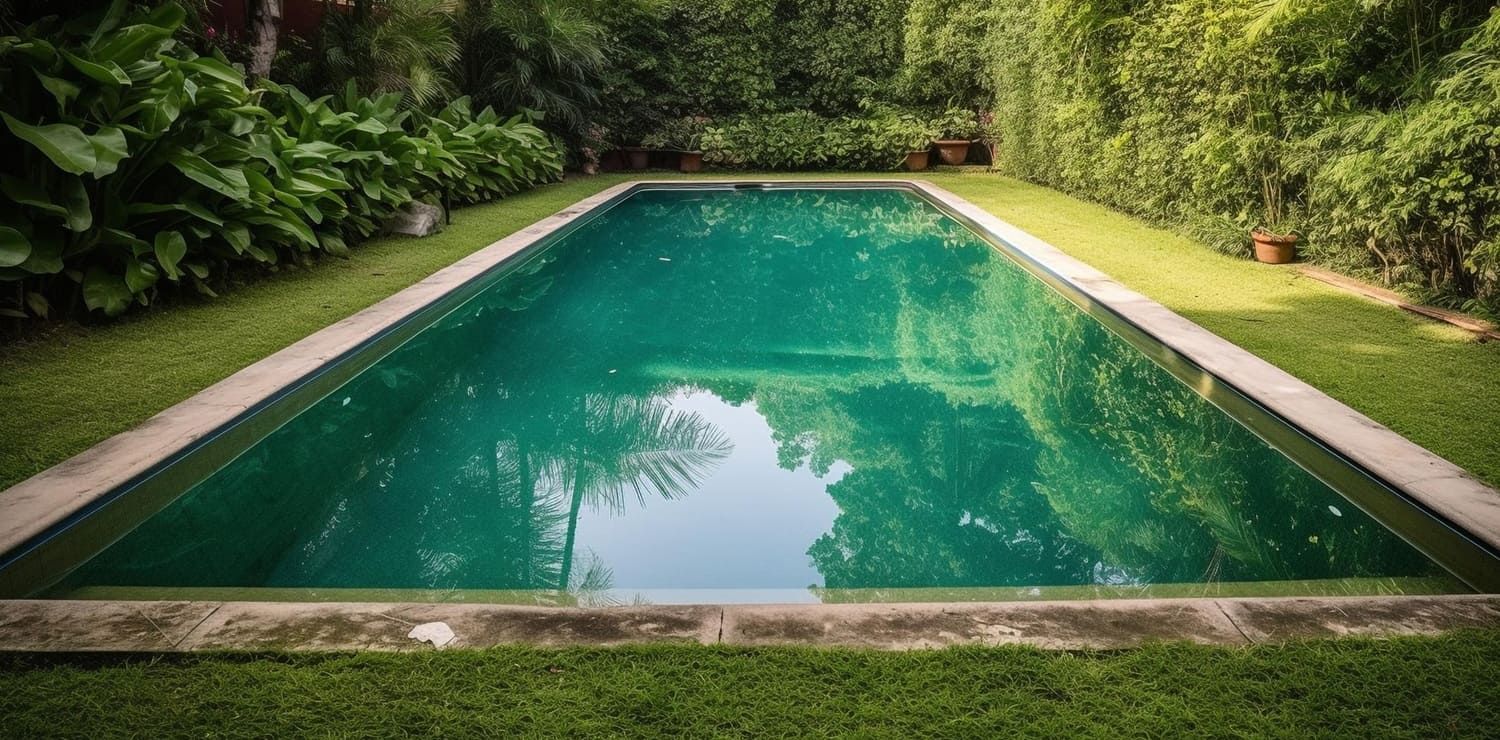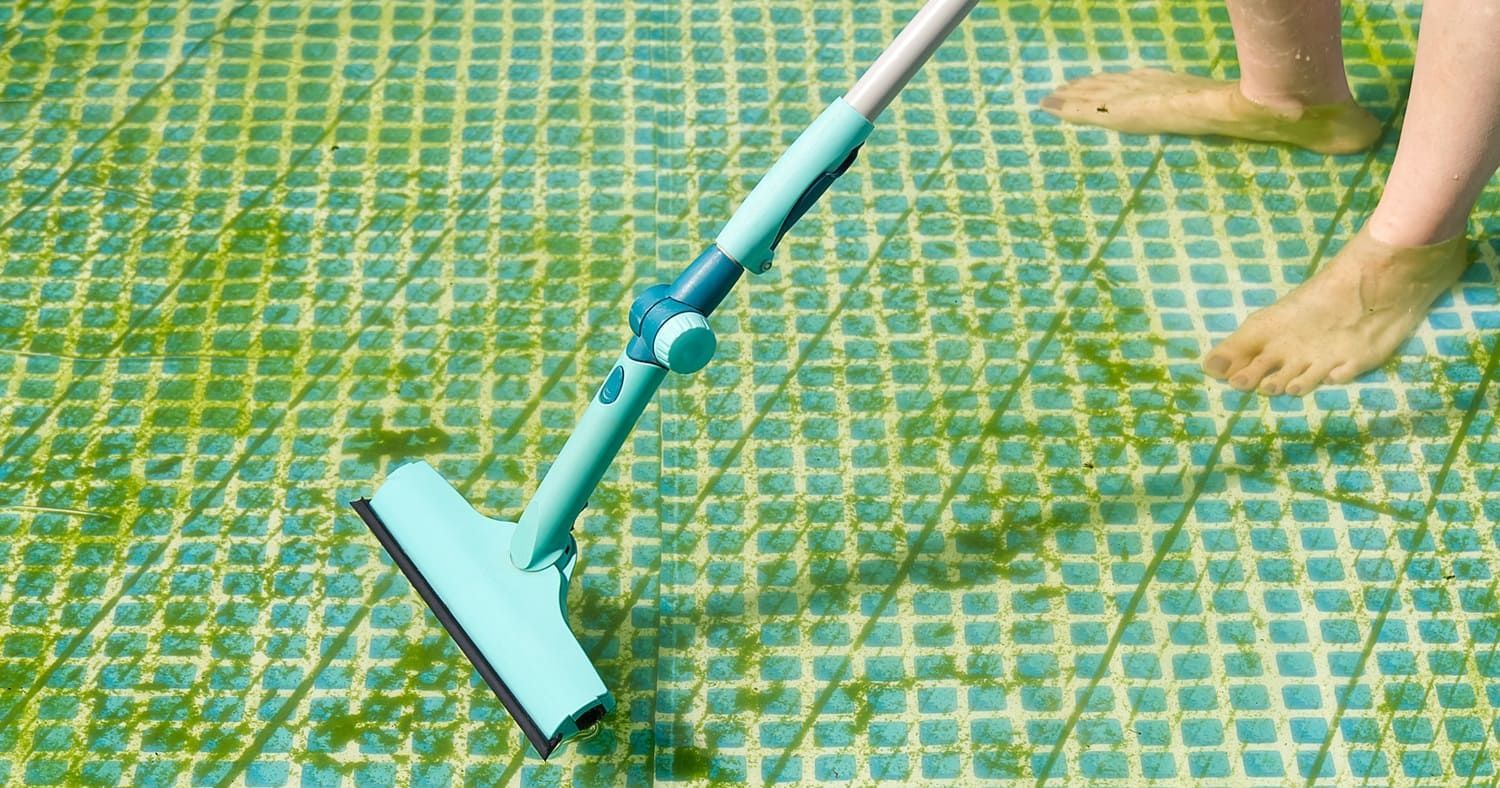How to Keep Your Pool Algae-Free with Routine Maintenance
Algae are tiny, plant-like organisms that can quickly turn your sparkling pool into a green, murky mess. They thrive in warm, sunny environments, making outdoor pools particularly susceptible to algae blooms. Algae spores can enter your pool through rain, wind, or even on the skin and swimwear of swimmers. Once in the water, they can multiply rapidly if the conditions are favorable. While algae itself isn't harmful, it can create slippery surfaces and harbor harmful bacteria, making your pool unsafe for swimming. This can pose a risk of skin infections or gastrointestinal issues for swimmers.
Besides safety concerns, algae can also lead to increased maintenance costs. It can clog filters and pumps, reducing their efficiency and leading to potential damage if left untreated. The presence of algae can also affect the aesthetic appeal of your pool, turning what should be a beautiful blue oasis into an uninviting green swamp. Understanding the causes and effects of algae is the first step in preventing its growth and maintaining a safe, enjoyable swimming environment.

The Importance of Routine Pool Maintenance
Routine pool maintenance is essential for preventing algae growth and ensuring your swimming pool remains clean and inviting. It involves a series of tasks that help maintain water quality, balance chemicals, and keep the pool equipment functioning properly. Regular maintenance not only prevents algae growth but also extends the lifespan of your pool's infrastructure, saving you money on costly repairs in the long run. By investing time and effort into routine maintenance, you can enjoy a safe and beautiful pool throughout the swimming season.
How Much Is Pool Maintenance?
The cost of pool maintenance can vary depending on several factors, including the size of your pool, the type of cleaning system you use, and whether you hire a professional service or do it yourself. On average, you can expect to spend between $80 and $150 per month on basic pool maintenance. This includes purchasing necessary chemicals, equipment, and other supplies. However, larger or more complex pools may incur higher costs, especially if advanced filtration systems or specialized cleaning agents are required.
If you choose to hire a professional service, the costs may increase but can offer peace of mind knowing that your pool is receiving expert care. Professional services often include routine cleaning, chemical balancing, and equipment inspections, which can help prevent expensive repairs down the road. While the upfront cost may seem high, the long-term benefits of professional maintenance can outweigh the expense, ensuring your pool remains a beautiful and safe space for relaxation and recreation.
Essential Steps for Algae-Free Pool Maintenance
1. Regularly Test and Balance Pool Water
Testing your pool water regularly is crucial for keeping algae at bay. Use a pool test kit to check the pH, alkalinity, and chlorine levels at least once a week. Ideally, the pH should be between 7.2 and 7.6, and chlorine levels should be maintained between 1.0 and 3.0 parts per million (ppm). Properly balanced water prevents algae growth and ensures the effectiveness of sanitizing chemicals. Consistent testing allows you to detect imbalances early and make necessary adjustments before problems arise.
Maintaining the correct chemical balance in your pool water can also prevent corrosion or scaling on pool surfaces and equipment. An imbalance can lead to skin and eye irritation for swimmers, reducing the enjoyment of your pool. By keeping a consistent schedule of testing and adjusting chemical levels, you can maintain a healthy swimming environment and extend the life of your pool's surfaces and equipment.
2. Maintain Proper Circulation and Filtration
Good water circulation and filtration are vital components of pool maintenance. Run your pool pump and filter for at least 8-12 hours a day to ensure that the water is thoroughly filtered and circulated. This helps to distribute chemicals evenly and prevents stagnant areas where algae can thrive. Clean the filter regularly to remove debris and prevent clogging, which can reduce its efficiency. A well-maintained filtration system is the backbone of a clean and healthy pool.
Regular inspection of your pool's filtration system can also help identify potential issues before they become major problems. Look for any signs of wear or damage in the pump and filter components, and replace them as needed to maintain optimal performance. Keeping your filtration system in top condition not only helps prevent algae growth but also ensures that your pool water remains clear and inviting.
3. Brush and Vacuum the Pool Surfaces
Algae often begin to grow on pool walls, floors, and steps. To prevent this, brush the surfaces of your pool at least once a week to remove any algae spores before they have a chance to develop. Use a pool vacuum to clean the bottom of the pool and remove debris that has settled. Regular brushing and vacuuming are essential tasks that help maintain the aesthetic appeal of your pool and prevent the buildup of contaminants that can lead to algae growth.
For best results, use a brush with the appropriate bristle type for your pool's surface. A stainless steel brush may be suitable for concrete pools, while a softer nylon brush is better for vinyl or fiberglass surfaces. Consistent cleaning not only keeps your pool looking its best but also reduces the workload on your filtration system, enhancing its efficiency and longevity.
4. Shock the Pool Water
Shocking your pool involves adding a high dose of chlorine to eliminate algae, bacteria, and other contaminants. It's recommended to shock your pool every 1-2 weeks or after heavy pool use, rainstorms, or when you notice cloudy water. Follow the manufacturer's instructions for the appropriate amount of shock treatment for your pool size. Regular shocking helps to keep your pool water crystal clear and free from harmful microorganisms that can compromise water quality.
Shocking your pool also helps to break down organic waste and contaminants that regular chlorination may not fully address. This process, known as superchlorination, restores the chlorine's sanitizing power and helps maintain a healthy swimming environment. By incorporating regular shock treatments into your maintenance routine, you can prevent common pool issues and enjoy a safer, more pleasant swimming experience.
Using Algaecides and Other Preventative Measures
In addition to regular maintenance, using algaecides can provide an extra layer of protection against algae growth. Algaecides are chemical treatments designed to kill and prevent algae. They should be used in conjunction with regular chlorination and balanced water chemistry. Apply algaecides according to the product instructions, usually after shocking the pool, to maximize their effectiveness. This preventative measure ensures that any lingering algae spores are eliminated before they can multiply.
It's also important to choose the right type of algaecide for your pool. Copper-based algaecides are effective against most types of algae, while non-metallic algaecides may be better for pools with sensitive surfaces or those used by swimmers with allergies. By selecting the appropriate algaecide and using it as part of your regular maintenance routine, you can prevent algae infestations and keep your pool water sparkling clear.
Additional Tips for Swimming Pool Upkeep
- Maintain Proper Water Levels: Keep your pool filled to the appropriate level to ensure efficient skimming and filtration. Low water levels can strain the pump and reduce circulation, leading to potential mechanical issues and increased maintenance costs.
- Skim Debris Daily: Use a pool skimmer net to remove leaves, insects, and other debris from the water surface daily. This prevents organic matter from sinking and contributing to algae growth, keeping your pool cleaner and reducing the workload on your filtration system.
- Cover Your Pool: When not in use, cover your pool with a pool cover to reduce exposure to sunlight and debris. This helps maintain water temperature and reduces the amount of chemicals needed, saving you money on pool supplies and extending the life of your pool surfaces.

Hiring a Professional Pool Service
While DIY pool maintenance is manageable for many pool owners, hiring a professional pool service can save time and ensure that your pool receives expert care. Professional pool technicians have the expertise to diagnose and resolve issues efficiently, keeping your pool in top condition. They can also provide valuable advice on the best maintenance practices for your specific pool type and usage patterns.
What to Expect from a Professional Pool Service
A professional pool service typically includes:
- Testing and balancing water chemistry to ensure optimal pool conditions and prevent algae growth.
- Cleaning the pool surfaces and skimmers to remove debris and maintain a pristine appearance.
- Inspecting and maintaining equipment to identify and address potential issues before they escalate.
- Performing necessary repairs or replacements to keep your pool running smoothly and efficiently.
By hiring a professional pool service, you can enjoy peace of mind knowing that your pool is well cared for, allowing you to focus on enjoying your time in the water.
Conclusion
outine pool maintenance is key to enjoying a clear, algae-free swimming pool. By testing and balancing water chemistry, maintaining circulation and filtration, and using preventative measures like algaecides, you can keep your pool in pristine condition. Whether you choose to handle maintenance yourself or hire a professional service, staying consistent with your upkeep routine will ensure a safe and enjoyable swimming experience for all.
At Oceancare Products Store, we provide high-quality pool cleaners and sealers designed to make your pool care routine easier and more effective. With the right products and maintenance practices, your pool can remain a beautiful and inviting centerpiece for relaxation and entertainment, enhancing your outdoor living space for years to come.
Contact us today for expert advice or to get the best pool maintenance products. Let us help you keep your pool in top condition!


